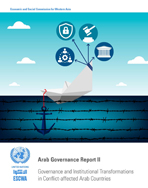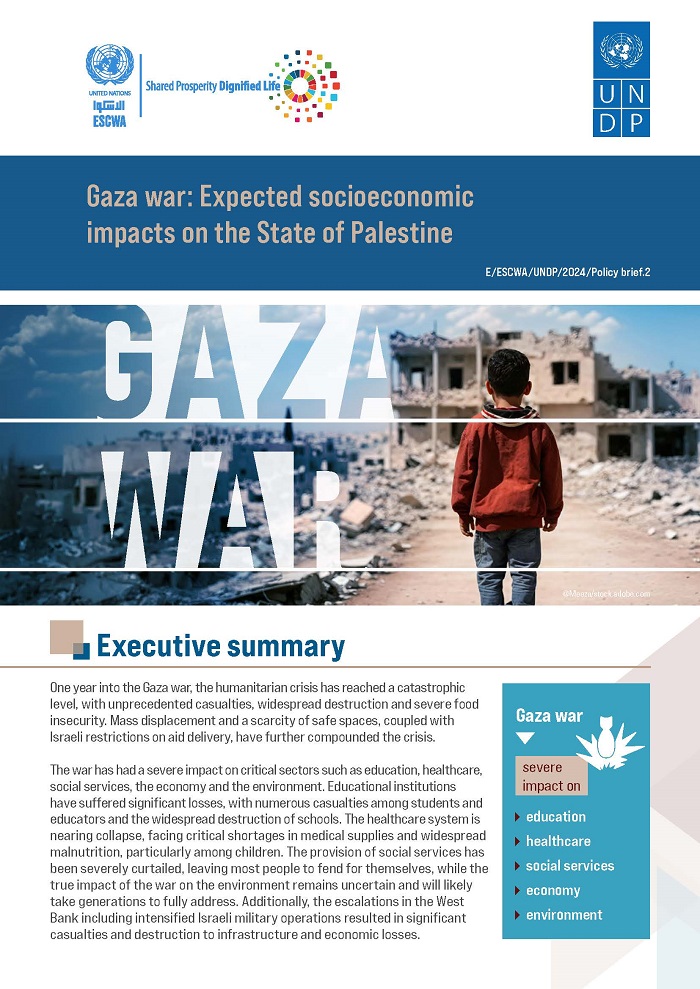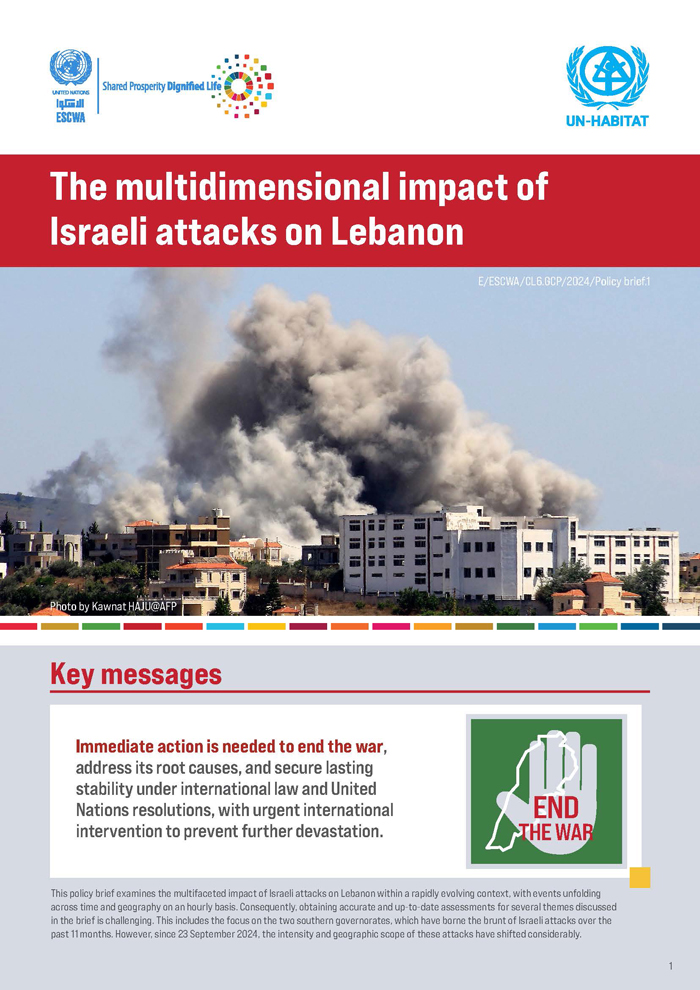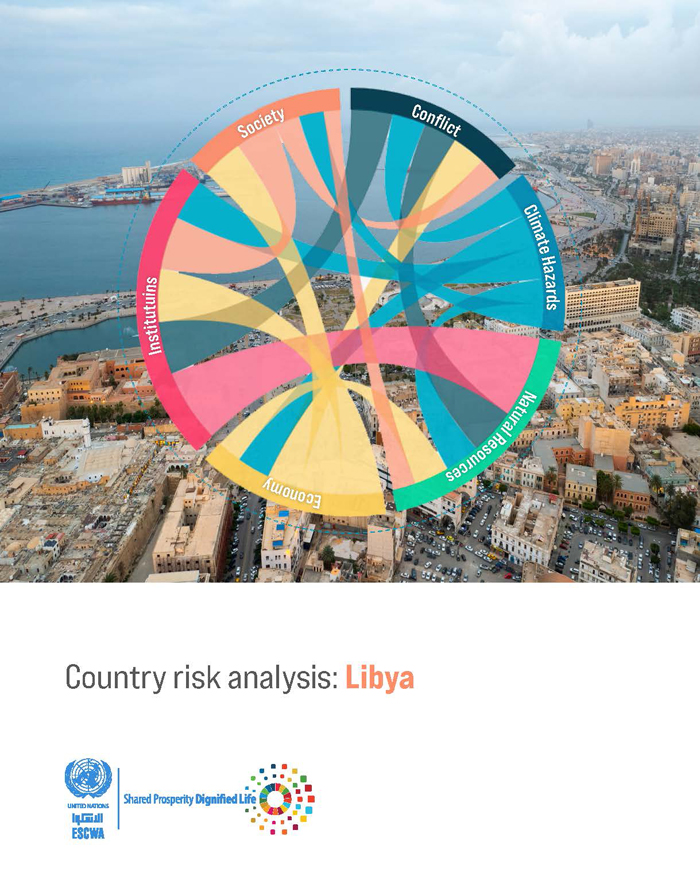
ESCWA Publication: E/ESCWA/ECRI/2016/1
Country: Arab region
Publication Type: Reports & studies
Cluster: Governance and Conflict Prevention
Focus Area: Resilient development & conflict prevention
Initiatives: Governance and institution building, Development challenges
SDGs: Goal 10: Reduced Inequalities
Keywords: Conflict, Governance, Institution building, Peace, Sustainable development, Administrative reform, Armed conflicts, Economic conditions, Judicial system, Peacebuilding, Political conditions, Security management
Arab Governance Report II: Governance and Institutional Transformations in Conflict-affected Arab Countries
January 2016
Today, conflicts of varying intensity directly affect at least half of the Arab countries, while the rest endure neighbourhood or spillover effects, impeding peoples’ fundamental right to live their lives free from fear and want. Conflict in the region has resulted in the catastrophic loss of life, displaced more than 22 million people and severely disrupted livelihoods. At the very least it has reduced the quality of life, compromised the capabilities of people to lead a dignified life and significantly undermined sustainable opportunities for development. The Arab region faces daunting challenges to restore political consensus and social cohesion in order to start the rehabilitation process. Crucially, countries must respond to the immediate needs of the population by developing representative, responsive, accountable and just institutions that can deliver services equitably.
The present report discerns priority issues for a conflict-sensitive approach to governance. It identifies four groups of priority institutions for reform. First, security institutions should strive to become professionalized, develop a centralized military command structure and be put under civilian accountability. Secondly, administrative institutions need to enact mechanisms that ensure that recruitment and promotion follow meritocratic rules and that they are autonomous and independent from political influence. Thirdly, judicial institutions must be independent, transparent and efficient, and able to provide equal access to all. Finally, political institutions need to include coherent, democratic and representative political parties, as well as strong, independent legislative bodies. The report concludes by proposing to establish an observatory of institutional reform to monitor the main institutional dimensions of a transformation out of conflict.
Related content
Resilient development & conflict prevention
,
Today, conflicts of varying intensity directly affect at least half of the Arab countries, while the rest endure neighbourhood or spillover effects, impeding peoples’ fundamental right to live their lives free from fear and want. Conflict in the region has resulted in the catastrophic loss of life, displaced more than 22 million people and severely disrupted livelihoods. At the very least it has reduced the quality of life, compromised the capabilities of people to lead a dignified life and significantly undermined sustainable opportunities for development. The Arab region faces daunting challenges to restore political consensus and social cohesion in order to start the rehabilitation process. Crucially, countries must respond to the immediate needs of the population by developing representative, responsive, accountable and just institutions that can deliver services equitably.
The present report discerns priority issues for a conflict-sensitive approach to governance. It identifies four groups of priority institutions for reform. First, security institutions should strive to become professionalized, develop a centralized military command structure and be put under civilian accountability. Secondly, administrative institutions need to enact mechanisms that ensure that recruitment and promotion follow meritocratic rules and that they are autonomous and independent from political influence. Thirdly, judicial institutions must be independent, transparent and efficient, and able to provide equal access to all. Finally, political institutions need to include coherent, democratic and representative political parties, as well as strong, independent legislative bodies. The report concludes by proposing to establish an observatory of institutional reform to monitor the main institutional dimensions of a transformation out of conflict.



